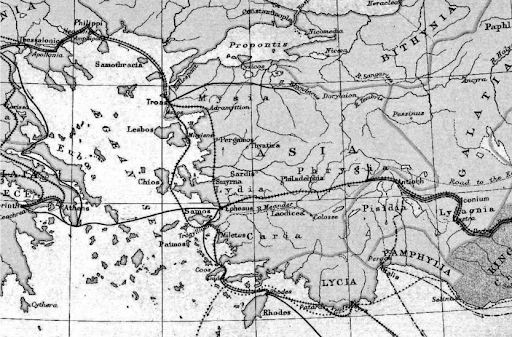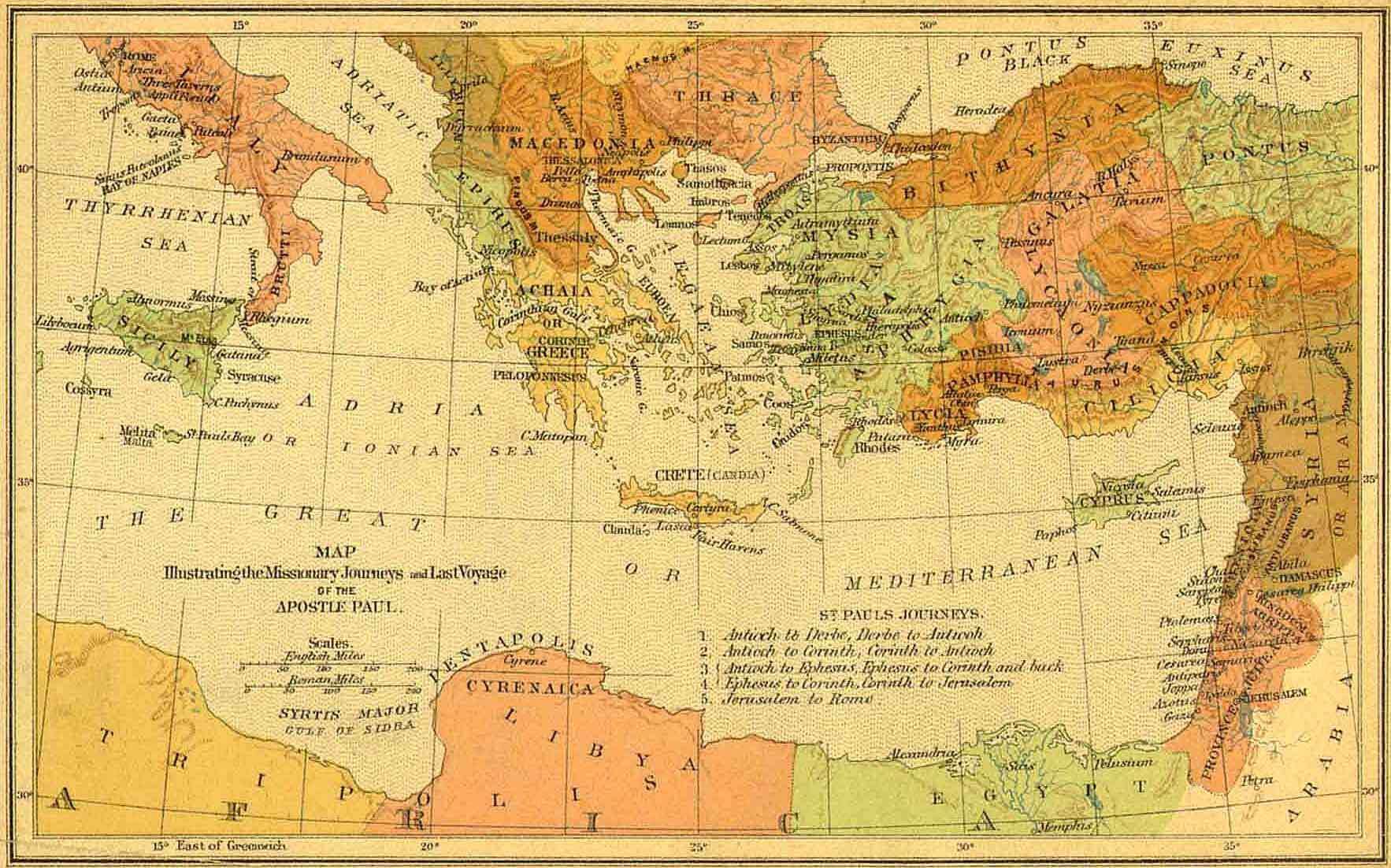We have all experienced a closed door. You thought a certain opportunity would be there for you, but it was not. Perhaps you encountered a closed door when seeking a job promotion, admission to a university, or a romantic relationship. Whatever the opportunity was, it was not ultimately available, and the experience was painful.
Paul and his companions faced closed doors. Acts 16 chronicles their journey as they set out from the region that included Derbe and Lystra. A Bible atlas (see figure 1) allows us to visualize the route taken by this group. First, we learn that they were traveling through Phrygia and Galatia, but this was not their preference. They desired to speak the word in Asia, which was to the southwest, but they were hindered by the Holy Spirit (16:6).
One can imagine some frustration in response to the closed door. After all, they had the good news of Jesus Christ. It seems incongruous that the Spirit would hinder them. The text does not tell us how the group responded emotionally. We do, however, know that they kept traveling northwest towards Mysia.
Next, Paul and his entourage tried to enter Bithynia to the northeast, but again the Spirit did not permit them (16:7). What a maddening turn of events this journey had become! One can imagine that denial after denial over more than 500 kilometers would be exasperating for this group seeking to share the good news. Again, the text does not indicate their emotional response. But we do learn that Paul and his companions kept traveling west until they reached Troas (16:8).
Troas was a port city. The group likely traveled for weeks, with closed doors to the southwest and the northeast, until they ended at the sea. It is conceivable that they viewed Troas as a dead end to a terrible, horrible, no-good, very bad journey.
The group stayed the night in Troas. In the night, they find out why God had closed those doors to Asia and Bithynia. In the night, Paul received a vision of a man urging him to goto Macedonia to aid them (16:9). This was the open door they had been longing for! Troas was not a dead end; they were to get on a boat and sail further (16:10–11). God assigned Paul and his companions to the task of bringing the good news to a new place. After they reached Macedonia, they encountered doors that were wide open, with new believers in Philippi (16:12–40), Thessalonica (17:1–9), and Berea (17:10–15). The Spirit closed the doors to Asia and Bithynia because God assigned them to Macedonia.
Why does God sometimes close doors? God sometimes denies opportunities because he has a different outcome in mind. He had a better plan than Paul’s band of travelers did. They learned about God’s will and sovereignty through their long and vexing journey. The good news of Jesus Christ spread to new places, possibly farther than Paul and his companions imagined. Paul’s journey reminds us that when we experience the frustration of closed doors, we can remember that God’s plan is better than ours.

This article first appeared as: Daniel K. Eng, “And Finally…On Closed Doors, and the Value of a Bible Atlas,” The Expository Times (Volume 130, issue 12), pp. 563-564. DOI: 10.1177/0014524619837848. It is posted here in accordance with SAGE’s Author Archiving and Re-Use Guidelines. The spelling of several words has been altered to fit the conventions of American English.

